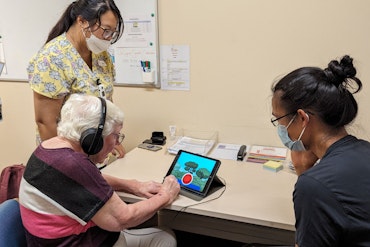LGBTI Aged Care Strategy Review findings released
Following on from a five-year implementation period, a review of the 2012 Lesbian, Gay, Bi-Sexual, Transgender and Intersex (LGBTI) Aged Care Strategy has now been released.

The Government’s LGBTI Aged Care Strategy Review has been released (Source: Shutterstock)
The released report reviews the actions undertaken to implement the principles and goals of the LGBTI Strategy and considers its success, as well as opportunities for improvement, from the perspectives of stakeholders made up of aged care service providers, peak organisations and individuals.
Minister for Aged Care Ken Wyatt was the one to release the findings of the review which commenced early in the year and says the review notes substantial progress in aged care workforce training to support older LGBTI Australians, and improved collaboration between the Government and the LGBTI sector.
“The review indicated that the Strategy initiated five years ago has had a positive effect but it is important to keep the momentum going and build on the success of this work,” he says.
“I thank the LGBTI Aged Care Strategy Working Group and applaud the contribution made by providers, peak bodies and individuals to ensure this review was comprehensive and provides a way forward.”
The review process included a collation of activities relating to the goals and actions defined in the LGBTI Strategy, analysis of responses to an online survey conducted between 28 March and 28 April 2017, an analysis of written submissions to a consultation paper conducted between 28 March and 1 May 2017, as well as facilitation of three focus groups.
Chief Executive Officer of Rainbow Tick accredited aged care provider ECH David Panter says the Strategy is a “positive step” in that it is the first time that the Government has recognised the specific needs of LGBTI older people in government aged care policy.
“The provision of an LGBTI-specific strategy to improve the wellbeing of older LGBTI people is a huge step forward in acknowledging the challenges that older LGBTI people face as a result of historical and current discrimination,” he says.
“Some of the common fears that older LGBTI people have include open or more subtle hostility or withholding of services by aged care workers, and verbal or physical assault from older residents in residential aged care facilities or retirement villages.
“As a result of these fears, some older LGBTI people will ‘go back into the closet’ to avoid being assaulted or abused.
“Older trans people in particular fear that aged care workers will not understand their specific medical and personal care needs and their physical health may decline as a result of this lack of education.”
The Government is also providing over $4 million to the National LGBTI Health Alliance over three years to provide LGBTI Awareness Training to ageing and aged care providers and workers.
The review has also been able to inform the development of the new Aged Care Diversity Framework which Minister Wyatt says he expects to release next month.























